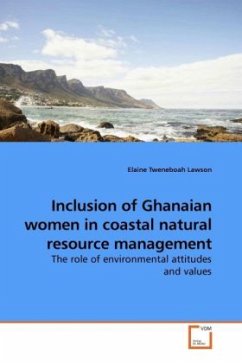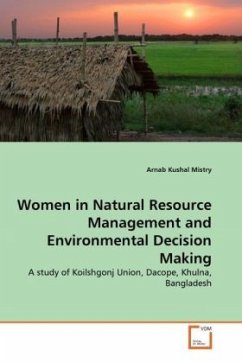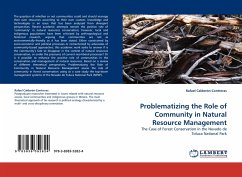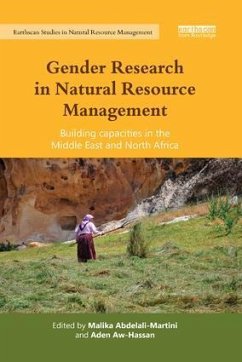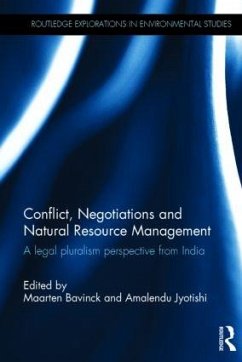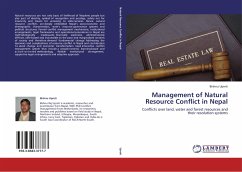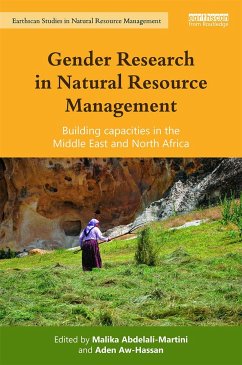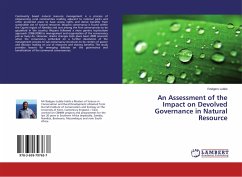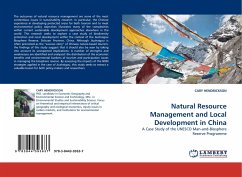
NATURAL RESOURCE MANAGEMENT AND LIVELIHOODS IN THE DEVELOPING WORLD
NATURAL RESOURCE MANAGEMENT AND LIVELIHOODS IN GHANA: A CASE STUDY OF GWIRA BANSO IN THE WESTERN REGION
Versandkostenfrei!
Versandfertig in 6-10 Tagen
32,99 €
inkl. MwSt.

PAYBACK Punkte
16 °P sammeln!
This piece of work was conducted to analyze the management of forest resource in the Gwira Banso community (Western Region of Ghana) and it impacts on livelihoods. To achieve the objectives, both qualitative and quantitative methods of data collections were employed. Findings indicated that most native and migrants acquired land through inheritance and lease from the chief respectively. The average total land acquired is approximately 49.52 acres, while land under cultivation has an average size of about27.03 acres. In view of the average land acquired, about 72% of the 16,500 hectares of fore...
This piece of work was conducted to analyze the management of forest resource in the Gwira Banso community (Western Region of Ghana) and it impacts on livelihoods. To achieve the objectives, both qualitative and quantitative methods of data collections were employed. Findings indicated that most native and migrants acquired land through inheritance and lease from the chief respectively. The average total land acquired is approximately 49.52 acres, while land under cultivation has an average size of about27.03 acres. In view of the average land acquired, about 72% of the 16,500 hectares of forest is gone. Majorities of the people in the area are considered poor even by their own standards, and so depend greatly on the forest for sustenance a phenomenon referred to as employment of last resort'. Notwithstanding the positive figures on the roles and rights reported by men, the forest in reality is not being managed sustainably. This research therefore provided some answers to createa win-win situation in which the forest could be managed wisely and living standards of the populace improved upon.



